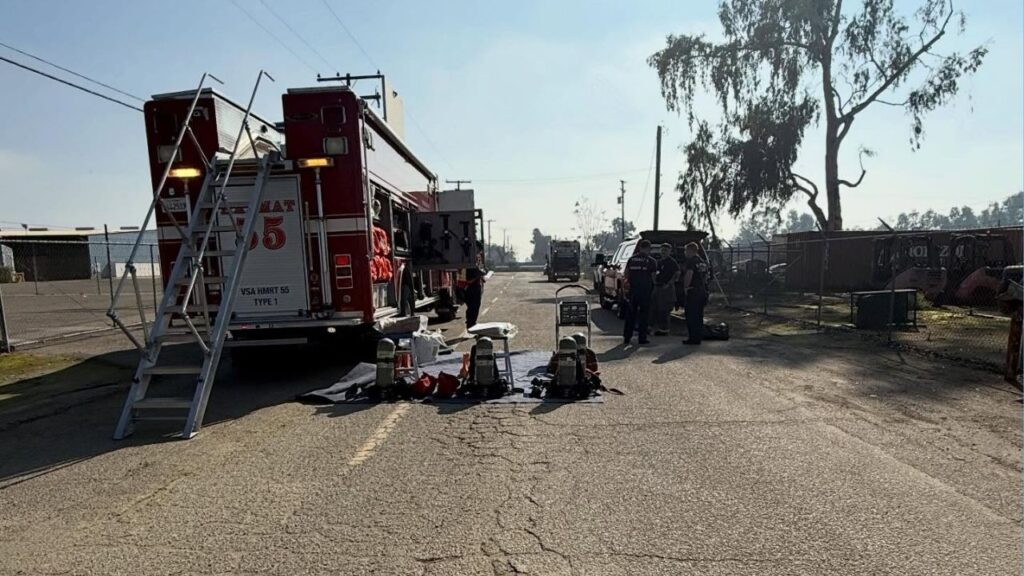California's agricultural sector faces complex trade-offs as Trump's policies on water, trade, and immigration could reshape the industry's future. (CalMatters/Larry Valenzuela)

- Trump's promise to increase water supply for agriculture conflicts with state efforts to protect Delta wildlife and water quality.
- Chinese retaliatory tariffs have already impacted California exports of walnuts, wine, oranges, and table grapes significantly.
- Proposed deportation policies could severely impact farm labor, as undocumented workers make up half of the state's ag workforce.
Share
|
Getting your Trinity Audio player ready...
|
Voters in California’s farm belt, stretching more than 400 miles from Kern County on the south to Tehama County on the north, delivered solid majorities for Donald Trump in this month’s presidential election.

Dan Walters
CalMatters
Opinion
They were obviously outvoted in heavily populated coastal and urban counties, so rival Kamala Harris claimed the state’s 54 electoral votes. However, it is Trump who will be moving into the White House, and of all California economic sectors, agriculture arguably has the most to gain or lose during his second presidency.
Water Policy Changes Could Benefit Agriculture
There are three policy issues particularly important to California’s farmers that Trump wants to change. If he does what he has promised, one might benefit the industry and two might damage it.
The beneficial change is what California Farm Bureau President Shannon Douglas, in a post-election statement, calls “securing a sustainable water supply.”
For years, state officials have been trying, either through regulatory decrees or negotiations, to reduce the amount of water San Joaquin Valley farmers take from the San Joaquin River and its tributaries to enhance flows through the Sacramento-San Joaquin Delta, thus improving its water quality to support fish and other wildlife.
Farmers are miffed that after two wet winters filled the state’s reservoirs, state federal water managers still limited agricultural deliveries.
A few days before the election, the state Water Resources Control Board issued the latest version of its water quality plan, but the supposed compromise is being critiqued by both farmers who want to minimize restrictions and environmentalists who demand a crackdown on water diversions.
Trump stepped into the issue during his first presidency, directing federal water regulators to increase agricultural supplies, and is likely to do so again.
Just before the election, Trump described California water policy, in all caps on his Truth Social website, as “INSANE POLICY DECISIONS,” which he defined as “the ridiculously rerouting of MILLIONS OF GALLONS OF WATER A DAY FROM THE NORTH OUT OF THE PACIFIC OCEAN, rather than using it, free of charge, for the towns, cities & farms dotted all throughout California.”
Related Story: What Is Saving Grace for Embattled Valley Farmers? People Always Need Food
Trade Wars and Immigration Policies Pose Risks
The two pending issues that could backfire on farmers who voted for Trump are imposing tariffs on imports from China, which could invite retaliatory tariffs on agricultural exports, and deporting undocumented immigrants, who comprise at least half of the state’s agricultural workers.
Despite objections from California’s Republican congressional delegation, Trump hit China with tariffs during his first term and “China retaliated with import tariffs that target U.S. agriculture,” according to a report from the University of California’s Giannini Foundation of Agricultural Economics.
“For almonds and pistachios, the tariffs did not reduce the volume of U.S. exports to China,” the report continued. “However, the trade war diminished California exports of walnuts, wine, oranges, and table grapes.”
Cracking down on undocumented immigrants has been a bedrock issue for Trump throughout his political career, and he’s promised to make good on his deportation pledge immediately after taking office.
For a variety of reasons, the state’s farmers have had difficulty finding enough workers to till and harvest their crops in recent years. Immigration restrictions, California’s high living costs, and the creation of new factory jobs in Mexico are among the reasons.
California has as many as 2 million undocumented residents, many of whom work in industries ranging from construction to agriculture. The full-blown roundup Trump promises would have an immense economic effect on the state, with agriculture arguably the most vulnerable.
When Central Valley farmers were enthusiastically backing a second term for Trump, they undoubtedly were hoping for relief from water restrictions. Yet that could be the smallest impact Trump 2.0 may have on their industry.
About the Author
Dan Walters has been a journalist for nearly 60 years, spending all but a few of those years working for California newspapers. He began his professional career in 1960, at age 16, at the Humboldt Times. CalMatters is a public interest journalism venture committed to explaining how California’s state Capitol works and why it matters. For more columns by Dan Walters, go to calmatters.org/commentary.
Make Your Voice Heard
GV Wire encourages vigorous debate from people and organizations on local, state, and national issues. Submit your op-ed to bmcewen@gvwire.com for consideration.
RELATED TOPICS:
Categories


















